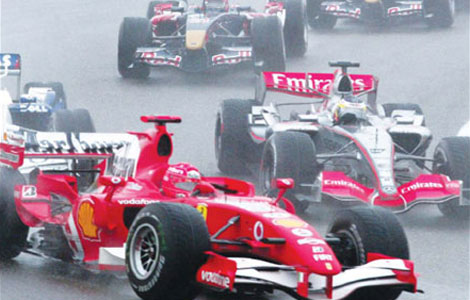Health
In brief
Updated: 2011-04-13 07:55
(China Daily)
Campaign to promote healthy lifestyle kicks off
The disease prevention and control bureau of the Ministry of Health, in conjunction with the Chinese Association of Health Education and Promotion and COFCO, has launched a national campaign to promote a healthy lifestyle.
The month-long campaign will help the public better understand the health risks of diets heavy in meat and fat, and advocate healthy diets with low fat and non-fried food.
As part of the campaign, a forum, themed "non-fried, more healthy", was held recently in Beijing, attracting dozens of delegates from health-related associations and government bureaus, as well as experts in the food industry and healthcare.
More people have become aware of the harm caused by high intake of salt, says Yin Dakui, president of Chinese Association of Health Education and Promotion.
But few really know about the health risk of diets with high calories, high protein, high fat, and low fiber, and it's time to raise people's awareness about these, Yin says.
As part of the campaign, health education activities, such as tests of BMI (body mass index), are being held in communities in Beijing in April.
Bribery and stickers help kids eat greens
There is nothing wrong with "bribing" children to eat vegetables, according to Ulrich Fegeler, a pediatrician and spokesman for Germany's Professional Association of Children's and Young People's Physicians.
"Parents are perfectly correct in resorting to tactics such as rewards and praise to get children to eat foods they initially reject," says Fegeler, citing results of a recent study by researchers from University College London.
The researchers say that children who have been rewarded with stickers or praise for eating healthy greens later ate them without being rewarded.
In the study, some 400 children aged 4 to 6 were asked to taste six different vegetables and rank their preferences. Every day for the next two weeks, each child was offered a small portion of the fourth-ranked vegetable.
Some of the children received a sticker they liked if they ate the vegetable. Others were praised. The rest - the control group - were not rewarded at all.
After two weeks, a month, and again after three months, the researchers observed whether the children ate the vegetable without receiving any reward. They found that children who had been given either stickers or praise continued to eat the vegetable.
No risk from antibiotics for acne sufferers
People who are prescribed certain antibiotics for acne - even those who take them for months at a time - are unlikely to develop bacteria resistant to those drugs, according to a new study.
The finding is surprising given what researchers know about bacteria's ability to adapt to common antibiotics and become immune to their effects, the authors say in the Archives of Dermatology.
And it's particularly interesting because the bacteria the authors examined - Staphylococcus aureus - is the culprit behind MRSA, an infection that is resistant to multiple antibiotics and more dangerous and harder to treat than other non-resistant infections, they note.
"A lot of the work that we've done over the years has often shown problems with long-term antibiotic use," says Dr David Margolis, one of the study's authors from the University of Pennsylvania School of Medicine in Philadelphia.
When it comes to tetracycline, the most common class of antibiotics used to treat acne, he says that "for an antibiotic that's been around for a long time ... it's interesting to notice that Staph aureus hasn't become overtly resistant to it".
China Daily-Reuters
E-paper

Green light
F1 sponsors expect lucrative returns from Shanghai pit stop
Buying into the romance
Born to fly
Light of hope
Specials

Share your China stories!
Foreign readers are invited to share your China stories.

No more Mr. Bad Guy
Italian actor plans to smash ‘foreign devil’ myth and become the first white kungfu star made in China.

Art auctions
China accounted for 33% of global fine art sales.
